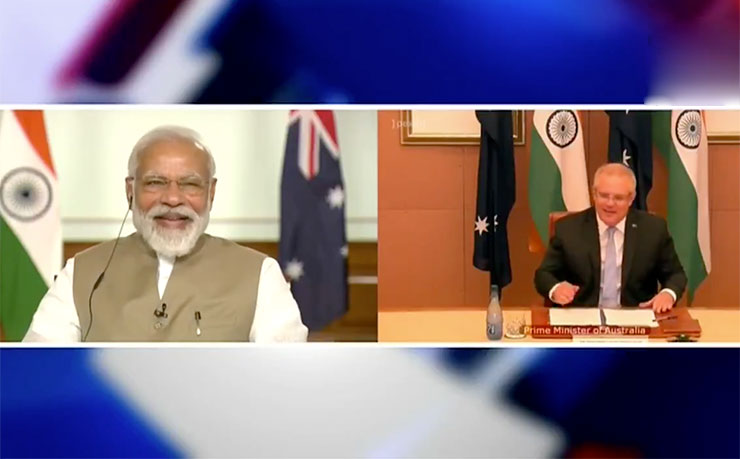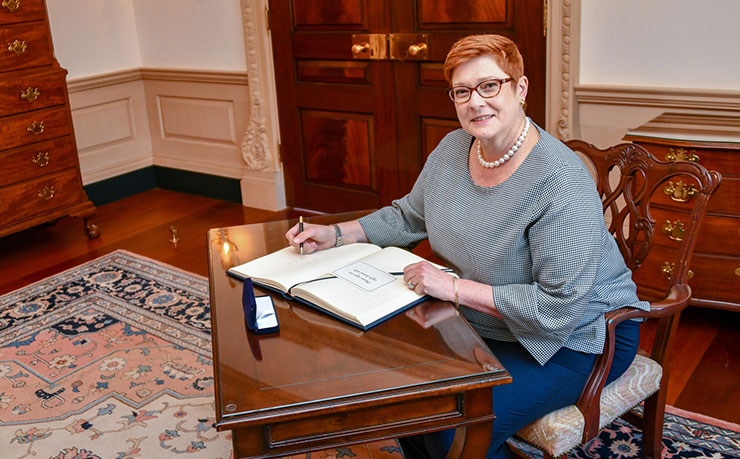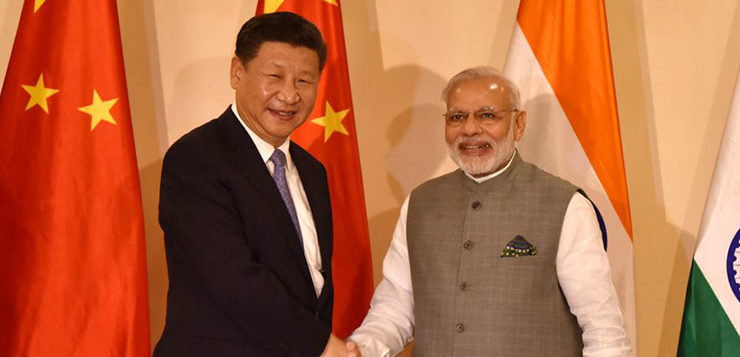While the Australian Government has ramped up its rhetoric and aggression towards China, its silence on human rights abuses in India remains deafening. Lee Rhiannon explains.
The virtual summit between Indian Prime Minister Narendra Modi and Australian Prime Minister Scott Morrison, held in early June, had a largely militaristic outcome and casts Australia and India as a partnership opposed to China.
This high-level event happened at a time when clashes between Chinese and Indian troops on their shared border were escalating, and Australia was stepping up its none too subtle criticism of China over that country’s handling of the COVID-19 crisis and trade issues.
Rather than use the summit talks to steer away from the anti-Chinese rhetoric emanating from some political leaders in both nations, the nine agreements signed by the two prime ministers elevate joint military and security cooperation in a way that will be read in Beijing as another aggressive act.

At the summit both nations agreed to broaden defence cooperation, expand joint military exercises and allow the reciprocal use of their military bases. Although there appears to be no reference to China in any of the summit agreements, the joint communique from Morrison and Modi appears to target China with its stated commitment “to develop new ways to address shared security challenges”.
An objective assessment of the summit would conclude that it further consolidated Morrison’s anti-China stance. Morrison failed to use the summit to raise with Modi concerns about human rights abuses against Indian Muslim communities and aggressive military incursions in which India is currently engaged. This omission stands in sharp contrast with how similar abuses by China are handled by the Australian Government.
Since 1999 the Australia-China Human Rights Dialogue has been a platform often used by successive Australian governments to critique the Chinese government’s treatment of its citizens.
Under the Morrison government, criticism of China’s policies have been amplified by government ministers at different fora. Last October, Minister for Foreign Affairs Marise Payne, in a speech to the United States Studies Centre at the University of Sydney, said China should be held accountable for its human rights abuses.
In a comment about China that should have relevance to Australia’s approach to India, Payne said: “Speaking our minds does not constitute interfering in another country.”
On this and other occasions Payne has publicly criticised China for its treatment of vulnerable minorities such as Uyghur Muslims. While the minister was right to speak out on China’s failure to respect and protect the human rights of these citizens, the Australian Government’s failure to apply the same standards to its dealings with India suggests that speaking up on human rights is not always motivated by altruism. It has in part become a selective weapon to attack and discredit opponents such as the Chinese regime.

What is needed is a consistent, principled stance on human rights for all. The level of abuse and discrimination Muslims in India are suffering should have been taken up by the Australian Prime Minister at the summit with Modi.
The Indian government’s nationalist policy of ‘Hindutva’ is based on the idea of cultural supremacy and creating a nation populated only by Hindus. It is this approach that is leading to discrimination and violence against Indian Muslims, which is not dissimilar to the way Muslims in China are treated.
A genocide alert has been issued by Genocide Watch for the Muslim population living in the two Indian states of Kashmir and Assam.
Morrison and Payne justify not speaking publicly about human rights abuses in India on the basis that it is an internal matter, and in the case of Kashmir that it is “bilateral matter for India and Pakistan”.
The inconsistency in Australia’s approach to the world’s two most populous nations could not be more stark.
If the Australian government was to apply the same standards on speaking out publicly on human rights abuses and threats to democracy in India as it does with China, it would not be alone in doing so.
The Office of the United Nations High Commissioner for Human Rights has urged Modi to remove the “discriminatory” law that makes it easier for followers of all the subcontinent’s religions, except Islam, to become citizens of India.

The annual report of The US Commission on International Religious Freedom identified that religious freedom conditions in India have “experienced a drastic turn downward”. The USCIRF, a bipartisan panel that advises the US government on religious freedom violations, concluded that India should be subject to sanctions if it does not improve its policies and practices.
Political groupings in the European Parliament, representing 626 of the 751 members, are backing a resolution critical of what they call the “fundamentally discriminatory” citizenship policies of the Modi government.
The London-based Economist is in no doubt about the state of India’s internal politics. Their front page feature under the headline “Intolerant India” describes the citizenship laws as a threat “to India’s democracy that could last for decades”. Worryingly that article concludes that these laws “are likely to lead to bloodshed”.
Australia’s handling of the relationship with China and India suggests that the Liberal-National forces in Australia remain locked onto policies that please the Trump administration.
Most worryingly Prime Minister Morrison has again failed to ensure that his government speaks out against human rights abuses irrespective of where they occur.
Donate To New Matilda
New Matilda is a small, independent media outlet. We survive through reader contributions, and never losing a lawsuit. If you got something from this article, giving something back helps us to continue speaking truth to power. Every little bit counts.




